Ex-Students Reveal Abuse at ‘Christian Torture Compound’

In southwest Missouri, a Baptist compound for troubled teen boys promises redemption on its bucolic 200-acre campus. Behind the facility’s arched gate, children will find a swimming pool, sports fields, and ranch for horses and exotic animals. Agapé Boarding School “is truly a place where miracles happen,” one piano-filled commercial boasts.
“At Agapé, we lovingly, patiently, and biblically teach your child the importance of submission to authority and the joys of being an obedient law-abiding citizen,” a soft-spoken voiceover actor says while images of smiling teenagers flash across the screen. “Mom and Dad, we want to support you in your effort to rescue your son from himself.”
But former students interviewed by The Daily Beast say the school was far from heavenly. Instead, they encountered a climate more like Lord of the Flies, where staff were given free rein to restrain and beat students, and where some kids were emotionally and sexually abused. They claim Agapé has functioned like a “cult” and “Christian torture compound” for decades, allowing adults to manhandle teenagers and withhold food, water, and proper clothing—apparently without most parents ever knowing.
Christian Boarding School Shutters After Accusations of Abuse, Depriving Girls of Food
According to these alumni, the school banned children from speaking to each other without adults present, censored their letters home, destroyed photographs showing anything other than happy faces, and admonished kids that if they ran away, locals with guns would hunt them down. As part of a “buddy” system, older students had authority to mete out seemingly arbitrary punishments to new students assigned to them.
Now they’ve joined a chorus of voices—including parents, lawmakers, and even heiress and boarding-school abuse activist Paris Hilton—demanding the state of Missouri shut down Agapé for good. “How much more do you need to see[?] … This needs to end!” Hilton tweeted to Missouri’s attorney general and governor on June 21.
Since last year, 19 former students have filed lawsuits against the school, alleging physical and emotional abuse, and in some cases, sexual abuse by staff and classmates.
Such accusations led to the arrest of the school’s ex-doctor, David Smock, who faces child molestation charges related to two alleged victims. He has pleaded not guilty. At a March hearing, one 16-year-old testified that Smock began abusing him when he was 13 and grooming him when he was 9 or 10, according to The Kansas City Star, which has extensively investigated claims against Agapé.
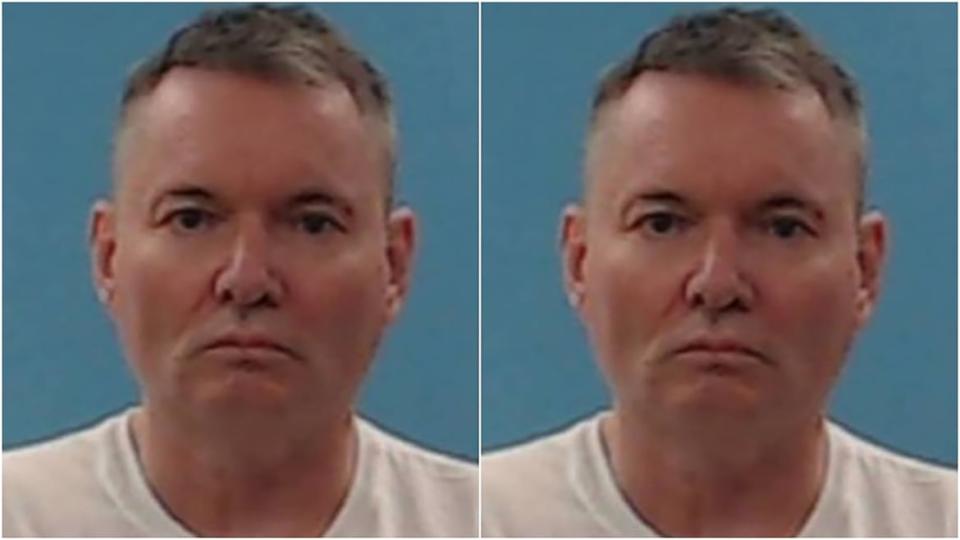
David Smock
Meanwhile, five staffers—including Agapé’s medical coordinator—are facing assault charges in Cedar County following an investigation by the Missouri State Highway Patrol and state attorney general. Three of those employees, the Star revealed, still work at the school, and two list Smock’s mansion as their address.
Advocates say these charges don’t go far enough, and that more Agapé staff should have been prosecuted. Cedar County Prosecuting Attorney Ty Gaither had requested assistance from Attorney General Eric Schmitt’s office, which recommended 22 staffers face a total of 65 charges. But last fall, Schmitt wrote Governor Mike Parson asking to be taken off the case, saying that Gaither “has indicated that he does not intend to seek justice for all of the 36 children who were allegedly victimized by 22 members of the Agapé Boarding School staff.” (Gaither did not return messages by press time.)
In a statement to The Daily Beast, a lawyer for Agapé Boarding School denied the accusations against the school, calling them “sensational.”
“For the past 30 years Agapé has provided over 6,000 boys with an opportunity to get their life back on track and toward a bright future,” Kansas City attorney John Schultz said. “Along with 24/7 supervision Agapé provides accredited academics, vocational training, mentoring, sports and many activities the boys enjoy. We are disappointed to learn of the sensational allegations that some of our former boys are making now—for the first time.
“We have read many specific allegations that we know could not have happened given the 24/7 supervision that extends to the sleeping quarter, shower bays, classroom, dining hall and all outdoor activities. We monitor the boys 24/7 for their own safety and the safety of every other boy here. We intend to file a response to these lawsuits, denying the allegations and look forward to a trial where evidence can be presented to refute these allegations.”
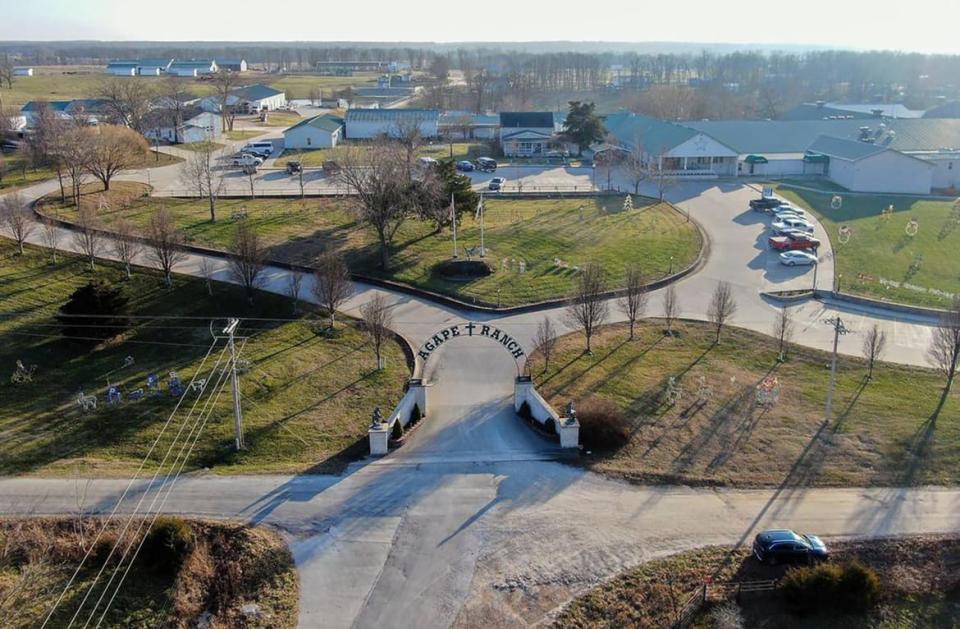
The school, which reportedly charges $48,000 a year in tuition, does not appear to have commented publicly about the accusations before. According to the Star, in fall of 2020, Agapé published a letter on its website that appeared to address the claims and said, “Sometimes we make mistakes, but our hearts are in the right place.”
“Most boys flourish here and go on to a great future,” the post read, “while a small number of other boys are just not the right fit and get bitter for being brought here.”
Robert Bucklin, one alumnus fighting to close Agapé, says he spoke to the FBI in late April about what he’d witnessed at the facility, but it’s unclear whether the feds are building a case. “They need to go in there and rescue the boys and worry about the investigation later,” Bucklin said. “These boys are in danger.”
Staff member at Agape Boarding School kicking & dragging a young boy
This shows clear abuse by the staff at agape@Paris_Hilton9 @EnglishTeach07 @DerrickNowlinMO @crystal_quade @RepKeriIngle @KWindham85 @ericgarland @FPWellman @JennaForMO @GovParsonMO @LauraAnnSTL @RayReedMO pic.twitter.com/WsNjNQQfpb— robert bucklin🇺🇲 (@robertbucklin8) June 13, 2022
In June, Bucklin shared a video from the late 1990s on Twitter that showed a staff member—identified by students as then-principal Brother Frank Burton—forcing a child in a bathrobe to run around a sand volleyball court and kicking him from behind. (Burton did not return messages left by The Daily Beast.)
“What the fuck is it going to take? Especially after seeing that video, what else is it going to take?” Bucklin said. “For bodies to start dropping there?”
Last year, Missouri lawmakers passed legislation that gives the state more oversight over unlicensed religious boarding schools, including the ability to petition a court to close them if there are health and safety concerns.
Democratic Rep. Keri Ingle, who sponsored the bill, believes the state is waiting for a criminal conviction or official finding of child abuse from the Missouri Department of Social Services (DSS) before it files for an injunction to shutter the school.
“I can’t empathize with the survivors enough,” Ingle told The Daily Beast. “We’re so close and yet so far from getting justice for them.”
“It sounds like hyperbole,” Ingle added of the abuse claims. “It sounds like a Stephen King novel, and it’s not. It’s something that’s been happening to kids in this state and across the country for decades, and they’re using the name of God to justify it.”
The Daily Beast spoke to former students who say their experiences at Agapé left them with emotional scars and unprepared for life outside its walls. Some, including Bucklin, have attempted suicide. One former student, Joe Barnett of Kansas, killed himself and cited the school in a suicide note, his wife Michelle told The Daily Beast. He was 33 when he died in 2020 and left behind three young boys.
“The things they did to my husband are just unspeakable,” Michelle said. “Somebody with a known mental illness should never at the age of 12 be sent to a place where you cannot talk to any of your peers for a year. That alone, besides the beatings they got, being told he just needed to pray harder… They really messed him up.”
The effort to stop Agapé could depend on one California mother, who appears to be one of the only parents speaking out. Nicole Fernandes told The Daily Beast she was a single mom and desperate for therapy for her son, Corey, when she sent him to the school in February 2019.
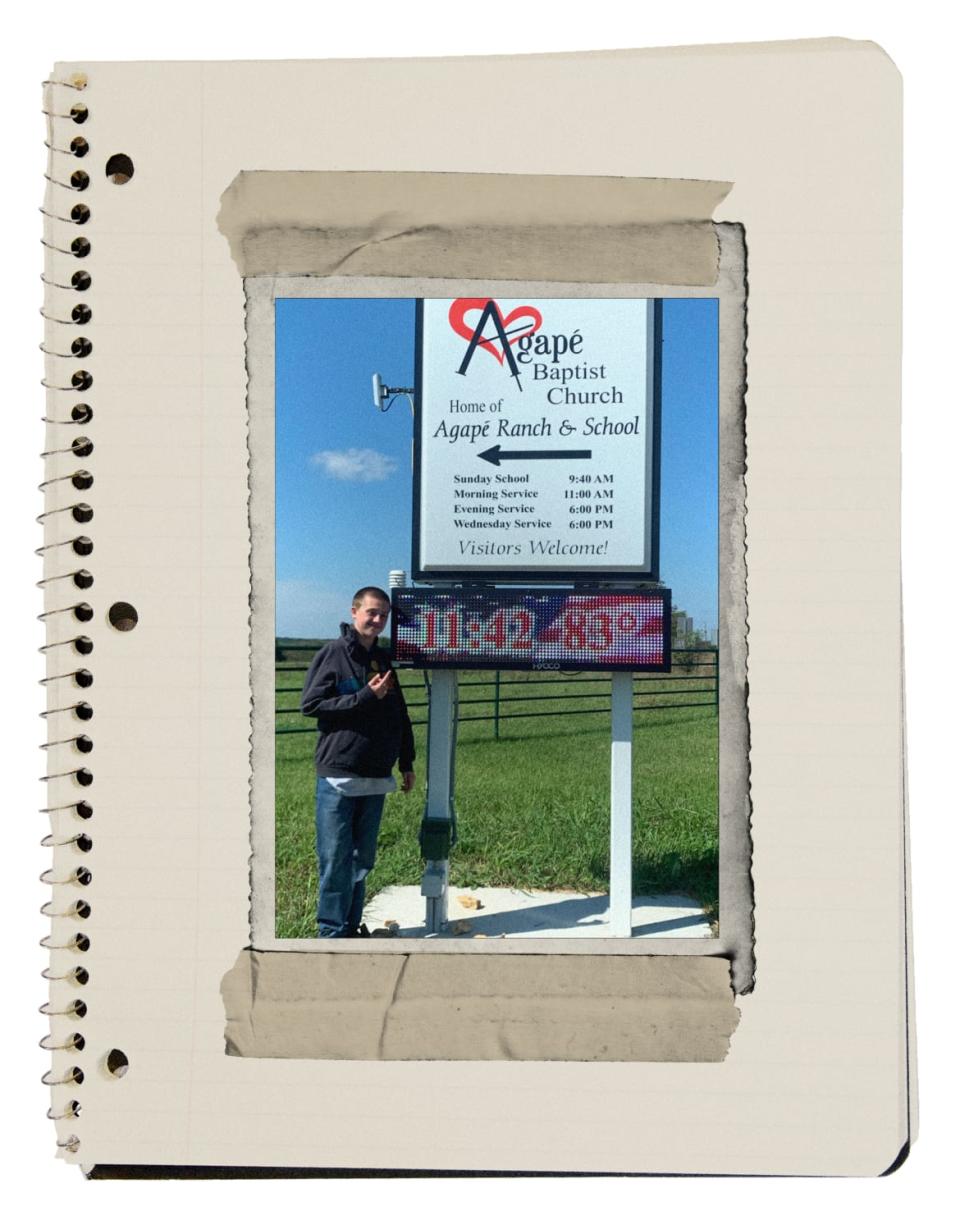
Corey, then 14 and diagnosed with disorders including autism and Tourette syndrome, was spiraling after the death of his father. She’d applied to other residential therapy programs, she says, until an Agapé recruiter caught wind of her efforts and began selling her on the school. The broker claimed the boarding school had therapy with horses and a beautiful, serene campus. “As a mom, I just want to clearly state this is the hardest decision you have to make in your life. I was freshly grieving a loss, and they took full advantage,” Fernandes told The Daily Beast.
Fernandes tried to call Corey every other week but staff wouldn’t allow her to speak to him. About 4.5 months later, she and other parents visited the campus, where Fernandes alleges staff warned them: “Your children are the most manipulative group of children we’ve ever seen. They’re gonna come in here today and they’re going to tell you nothing but lies. Don’t believe them, because you’ll be failing your child if you take them out of the program.”
Hours later, when they brought out Corey, she didn’t recognize her son until he grabbed her shoulder and said, “Mom!” She cried when they reunited. “I did not recognize him whatsoever,” Fernandes said, adding that he had bags under his eyes and had lost weight, his clothes were filthy, and he was wearing size 12 or 13 rain boots that didn’t belong to him. Staff, she claims, gave his expensive Stephen Curry basketball shoes to another student.
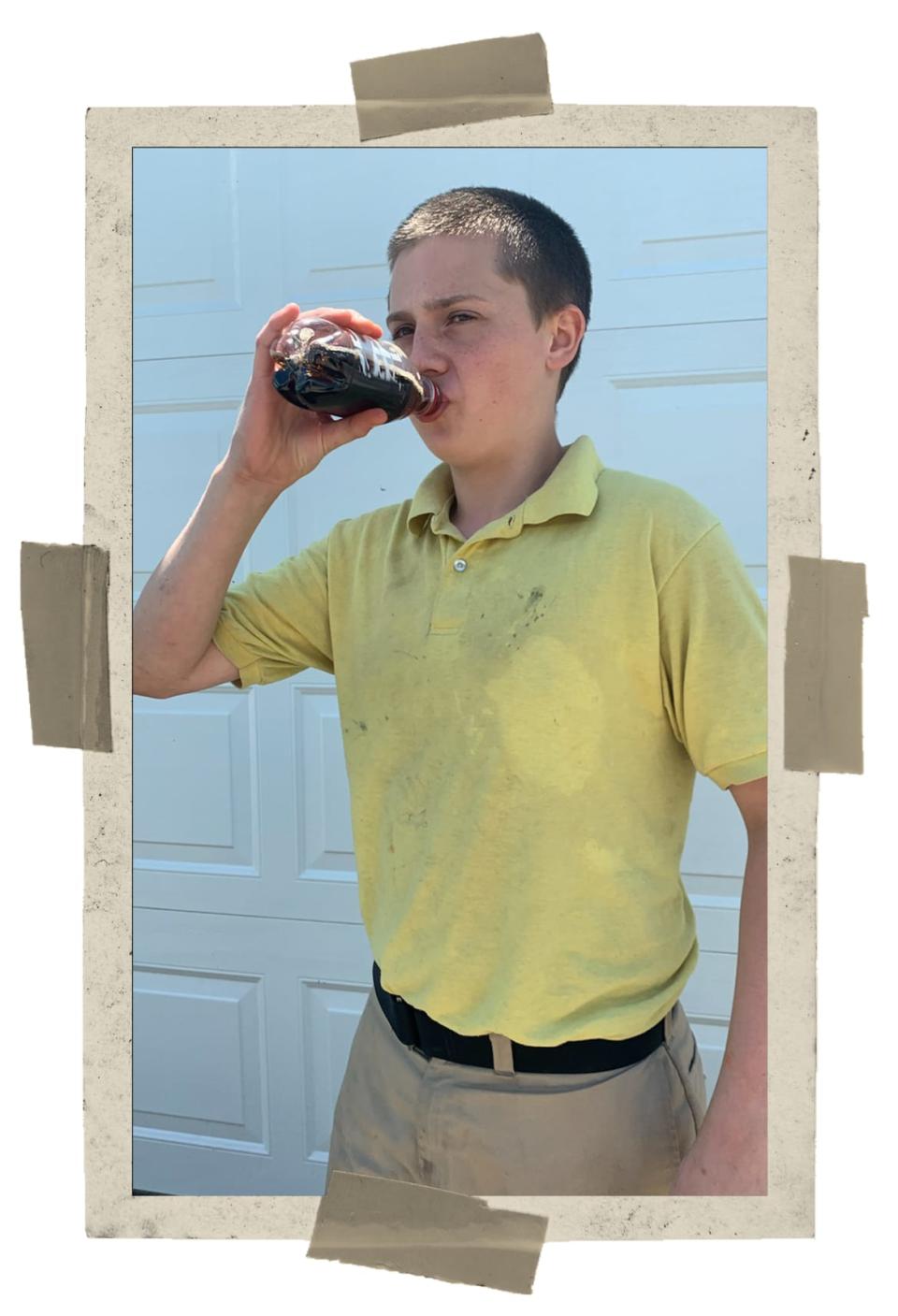
She wonders whether her son was treated differently because of his visible special needs and claims that the school didn’t allow her son to get therapy, see a doctor, or take proper medications.
Fernandes said the school repeatedly denied her and other parents a tour of the facility. “The boys finally told us, ‘They won’t take you because they’re disgusting. There’s no stalls in the bathroom. There’s disgusting things all over the beds and the floor.’”
Three months later, after the school continued to deny her contact with her son, Fernandes pulled Corey from the school. When she collected him, she says, “He was really skinny, the sweats I had sent him with were just hanging off of him. He looked like he was straight from a concentration camp.”
Corey is still haunted by his experience at Agapé, talks about the school every day, and has nightmares about it, Fernandes said. “Agapé has caused nothing but damage for my son and my family,” she said.
Fernandes, who filed a lawsuit against Agapé this month, said she’s doing a forensic interview with local police, who she believes will relay the information to DSS in Missouri.
“He’s my baby. I didn’t send him away to be raised by someone else. I sent him away to get the help that he deserves,” she said, tearing up. “It affects us every single freaking day.”
“I just can’t imagine all the kids that are still stuck there right now. That’s why we’re speaking out. Not really for ourselves but for the kids that are still there.”
Robert Bucklin, who arrived at Agapé at age 13 in 2007, wonders whether political connections have kept the school running. In January, he contacted a state agency that regulates lawyers to complain about Gaither’s handling of Agapé cases. (This year, the Springfield News-Leader confirmed there’s an open ethics investigation against the attorney, but Gaither declined to comment.)
Bucklin has raised questions about Gaither’s comments in the press that he once saw Dr. Smock—who was Agapé’s physician but ran his own medical office—to get a flu shot and thus referred Smock’s criminal case to another area prosecutor.
Cedar County Deputy Robert Graves, a former Agapé employee, is married to a daughter of Agapé’s late founder James Clemensen. According to the Star, Graves’ daughter was a sheriff’s dispatcher in 2018 and 2019. Former dean of students Julio Sandoval has worked shifts at the county jail and his son is a corrections officer, the sheriff’s office has said.
“Victims were coming forward before 2020, but no one listened to them,” Bucklin told The Daily Beast. “You had a staff member and his wife calling DSS, calling the state, asking them to look at Agapé. Nobody did.”
Clemensen, a former California Highway Patrol officer, and his wife Kathy founded Agapé in Washington state in 1990. They relocated to Missouri six years later, after the feds charged him with removing asbestos-containing materials from steam pipes and burying it on school property. Court records show that under a plea agreement, Clemensen pleaded guilty to one of three violations of the Toxic Substances Control Act, received a $1,500 fine, and was sentenced to three years of probation. (One former student told The Star that kids stripped the hazardous materials.)

In 2002, Clemenson told the St. Louis Post-Dispatch that he brought his school to Missouri “because of its lack of regulation” and would leave if required to get a license.
Two years later, an 18-year-old Agapé student was charged with three counts of sodomy after abusing another student. He was convicted and sentenced to probation. “Where were the authorities when that happened?” Bucklin said. “They failed us then and they’re failing us now. They gave these monsters a safe haven.”
The powers that be began to listen to Agapé alumni after the 2020 closure of nearby Circle of Hope Girls’ Ranch, which was founded by former Agapé employees Boyd and Stephanie Householder. They now await trial on a litany of child abuse and neglect charges and face a lawsuit from their own daughter, Amanda. “My dad just really thrived there because he could do whatever he wanted,” Amanda told The Daily Beast. “I don’t think Circle of Hope would have turned out the way it did if it wasn’t for Agapé.”
From Bucklin’s perspective, “Jesus would be ashamed of” Agapé staff, “who portray themselves to be Christians.”
On some occasions, Bucklin said, up to five staff member would restrain him, twisting his arms and legs, kicking his ribs, and jabbing his pressure points. One staffer allegedly attacked him as he got a haircut, wrapping the cord of the clippers around his neck until other students intervened. “I tried killing myself multiple times,” Bucklin said. “I would rather have been dead than wake up and face more abuse.”
Bucklin said he can’t forget the blood-curdling screams emanating from the “Padded Palace,” a carpet-covered room where staff allegedly threw kids around like ragdolls. Now in nursing school and working in a hospital, he says restraints are rarely used—nothing like at Agapé, where a kid could be confined for looking at a staffer the wrong way.
“I remember this guy in the dorm rolled a fake joint and these staff members restrained him for hours,” Bucklin said. “He came back into the dorm, his shirt was torn apart, he had blood everywhere all over him, his face was black and blue. And that happened constantly. I think the longest restraint when I was there was 9 hours. They literally had to do a shift change because the staff was getting tired. That guy couldn’t walk for days.”
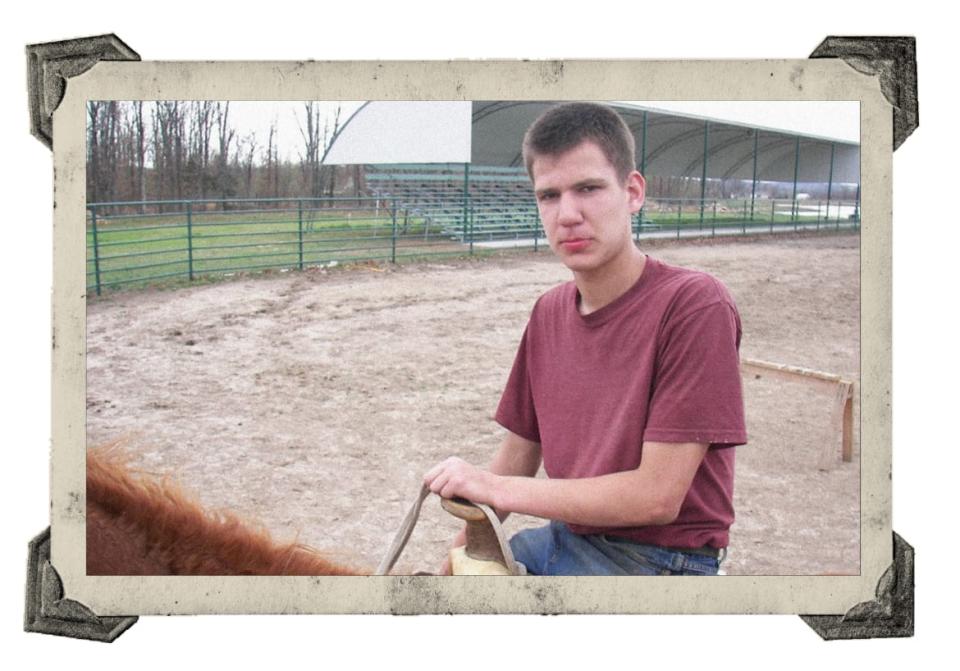
Bucklin said that a fellow student sexually abused him, but when he reported it to the dean of students, no one took action. He claims his family wasn’t notified, and the student didn’t face consequences. “You learned how to survive every day,” Bucklin said. “We learned how to talk without moving our lips because you weren’t allowed to talk. You could get restrained for talking.”
James Clidence, a pastor who worked at Agapé from 2012 to 2015, told The Daily Beast his wife had called police and child protective services multiple times but no one seemed to investigate what they considered abuse at the school.
Clidence claims he was fired after refusing to sign a nondisclosure agreement, and after he was reprimanded for not punishing kids. The emphasis on beatings bothered him, as did “brown town” which was reserved for unruly or unfavored students. Under that sanction, kids would eat brown food for every meal, including cereal for breakfast and refried bean burritos for lunch and dinner. “They would probably be eating a total of around 450 to 550 calories in a day. These are teen boys. And then they do physical labor, exercise, exercise, exercise all day,” Clidence said.
“I saw some kids lose a very unhealthy amount of weight while we were there. That’s one of the things we did call the state about.”
Clidence said he witnessed staff slam students to the ground, while he opted for de-escalation techniques. “Some of these people should not have been within 10 feet of a kid, in my opinion,” he said. “They didn’t know how to deal with children, especially kids who were acting out.”
Like some students, Clidence calls the school a “cult,” one where staff were paid poverty wages while the Clemensens drove Range Rovers and collected a menagerie of exotic animals, including zebras who died in the Missouri weather. He said staff lived on campus and that their wives were required to volunteer at school facilities. As a thank you, the school would pay the husband about $132 for the wife’s work. Clidence’s wife, however, clashed with the Clemensens so he eventually stopped receiving that money.
While the school advertised counseling, Clidence says, the only counselor was a pastor who advised kids to let Jesus control their lives. “They are weaning kids off medication,” he said. “So the whole goal was to get these kids off the meds and get Jesus in them and then they would act better, so that I don’t know if they really believed in mental illness.”
“Everything was completely based on spiritual manipulation. If you didn’t like something, it’s because you weren’t right with God.”
James Griffey was 15 when his family sent him to Agapé. It was 1998, and the school housed about 140 kids in military-style bunks, espoused a Christian curriculum with self-taught educational packets, and forced the children to work long days hauling armfuls of rocks from point A to point B—a discipline mentioned by multiple former students.
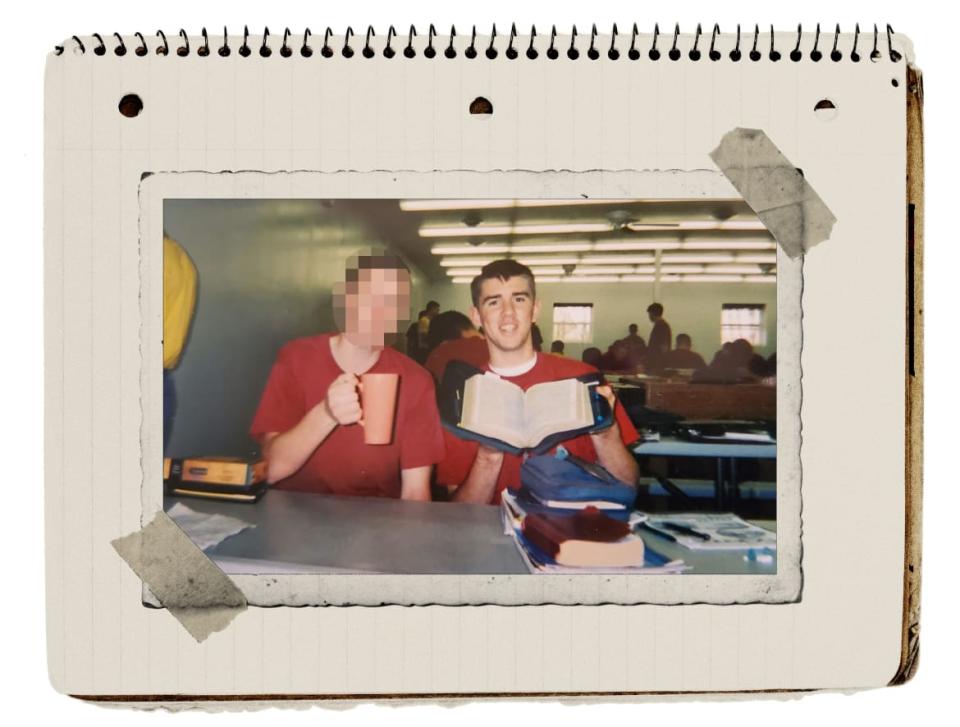
On his first night, Griffey says, he learned how dangerous Agapé could be. He was preparing for bed in the dorms when he spoke to another student, which was against the rules. “I told you, you can’t talk to anybody! Get down and do push-ups,” Griffey’s 17-year-old “buddy” commanded. The buddy ordered Griffey to do 25 reps, then demanded 25 more when he pleaded that he couldn’t. “In their mind, it’s not that I can’t do it, it’s that I’m not doing them,” Griffey recalled.
The buddy escorted Griffey to a twentysomething staff member, who took over. After the word “gosh” twice slipped from Griffey’s mouth as his arms collapsed beneath him, the chaperone screamed in his face, “Don’t use my God’s name in vain, do more push-ups!” He says the man pounced on him and began punching him in the face as students watched from their beds.
“Eventually three staff members came in and grabbed him off me,” Griffey continued, adding that no one apologized or took a report of the incident.
Griffey wouldn’t see his family, who lived in California, for two years. “I was just in such a dazed and confused state of mind,” Griffey told The Daily Beast. “I kept thinking that my family was going to come through the door any minute now, to come take me home, and be like, ‘Oh surprise, joke’s on you! I hope you learned your lesson.’”
“I just remember writing home, asking my grandma, ‘Hey, I love you, I miss you, I realize I made a mistake with how I treated everyone. I learned my lesson. How long am I here for? Am I here till I graduate?’” Griffey said. “I was just crying out, give me some kind of sense of what’s happening.” Griffey says his family wouldn’t learn how tyrannical the school could be until years after he left.
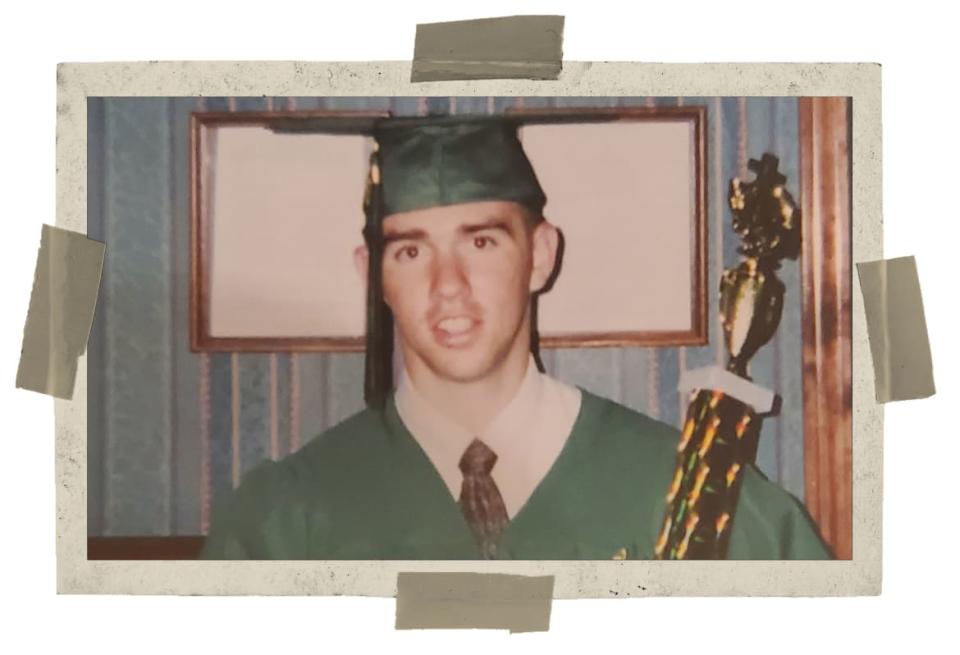
He completely conformed to the Agapé system to survive and briefly joined the staff after graduation. But he quit after higher-ups complained he didn’t punish kids enough. “It really kind of effed with my brain a lot,” Griffey said. “I really adapted and let them brainwash me into everything, believing all the stuff they teach. I had no other option.”
New students or those who misbehaved were ordered to spend their days in “boot camp,” where, according to Griffey, “They send you just to break your spirit.” That consisted of “hours of working out whether it was freezing and snowing outside or 100-plus degrees outside” at a volleyball court area called “the sandpit,” or performing unpaid manual labor on the property, he said.
After these workouts, Griffey said, staff made kids lie on their backs with arms and legs in the air and repeatedly scream, “I’m a dying cockroach!” If students weren’t loud enough, the staff member would stamp on them with their boots.
“They’re dragging you around, throwing you around, pushing you, hitting you,” Griffey said. “Kids would faint from the heat, and they would just splash water on them and drag them around still be like, ‘Did I tell you you could faint?’”
Kids were also allegedly ordered to box each other or the employees. “Say one of the students was talking back to the principal, he’s like, ‘OK, you think you’re so big and bad, come on, we’re going to the sandpit and putting on the gloves’... and basically the staff would beat the crap out of him,” Griffey claimed.
Staff instilled fear into the students, who outnumbered adults. But Griffey remembers some kids were accused of trying to start a riot. “The staff defused it before it even happened, but I remember talking to one of the staff members afterwards,” Griffey recalled.
Griffey asked Brother Robert Graves, “Hey, man, like didn’t that scare you? There’s over 100 students.” The staffer, who earned the nickname “GI Graves” for wearing military pants and boots, allegedly replied, “Nope, not at all.”
According to Griffey, Graves then pulled up his shirt to reveal a handgun and declared, “Because if it comes between a student or my family, I will not hesitate to take one of these guys out.”
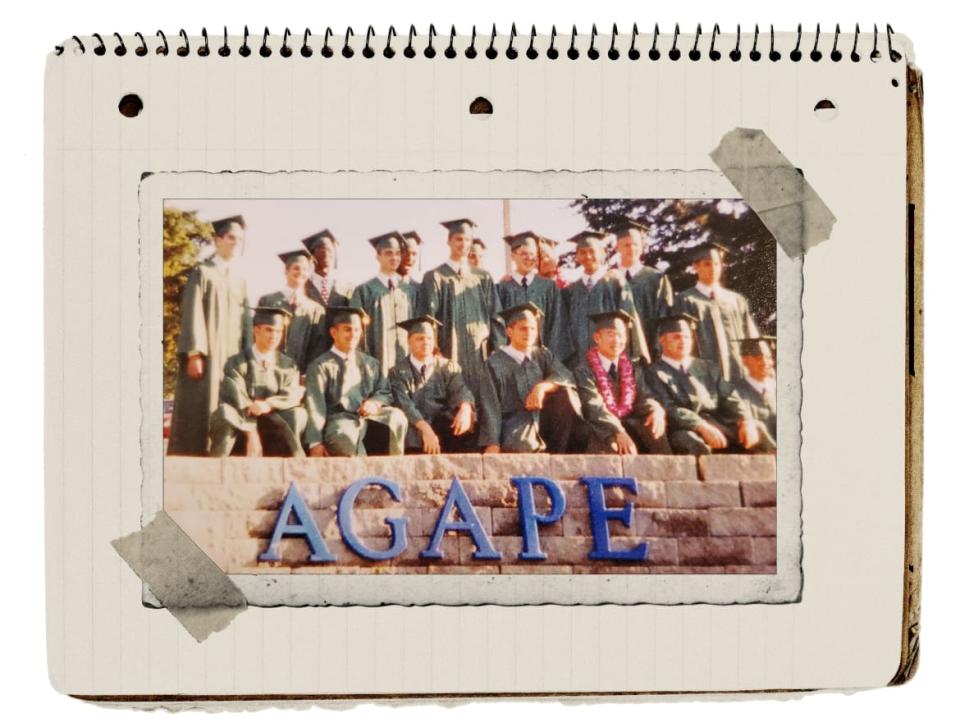
Griffey says that when he left Agapé, he was still “brainwashed,” thinking Satan was around every corner. He didn’t know how to interact with people or who to trust. He didn’t know what freedoms he was allowed to enjoy. He tried to kill himself by downing an entire bottle of gin and ended up in the emergency room.
Now 39, Griffey has a solid relationship with his family and friends, a good job in California, and works as a DJ on the side. Last year, he testified before the Missouri House of Representatives to support the bills creating state oversight over religious youth homes, and to speak out for current residents who might be silenced.
“We were kids that needed help.”
Josh Bradney was sent to Agapé in 2014 when he was 12, after his parents deemed him disrespectful and in need of guidance. The youngest child of four, Bradney says his adoptive mother was having trouble handling him while his dad traveled for work.
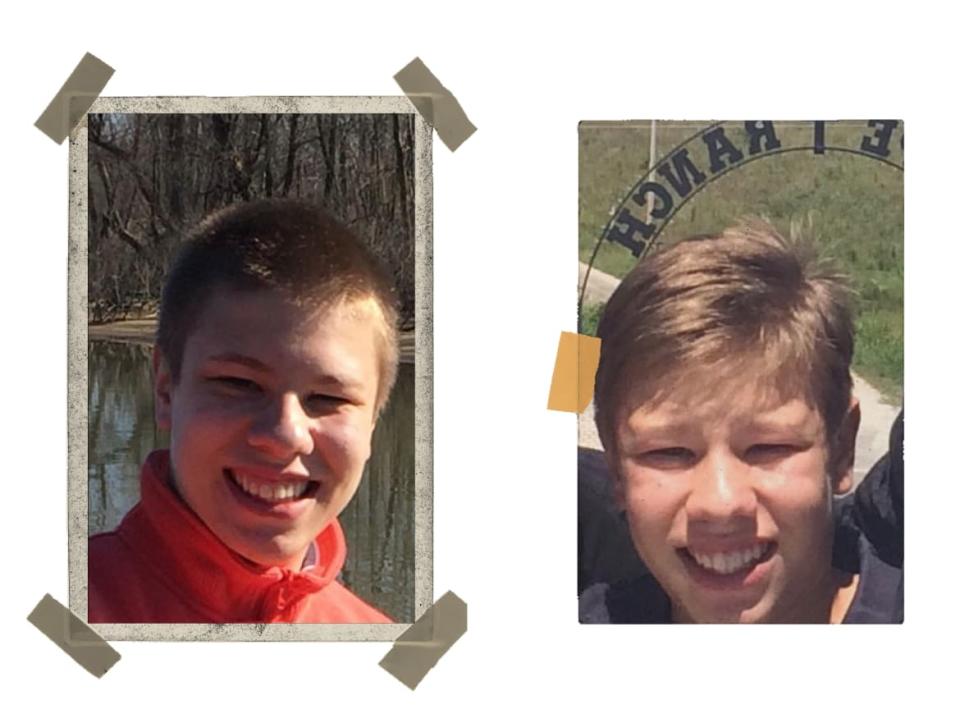
When he first arrived, Bradney says, staff strip-searched him and chucked his Bible into the trash. They told him he could only have the King James Version of the scripture.
Three days later, Bradney says, a staff member named Julio Sandoval began screaming and spitting in his face as he got a haircut. “I told him, ‘Hey, don’t spit in my face,’ and that’s when he grabbed my shirt, picked me up, and threw me to the ground,” Bradney said. “I was dragged out of the intake room and then went to the padded palace.”
For a while, Bradney says, he was the youngest student there. “It was scary because you’re the youngest guy against 15, 16, 17-year-olds. When you don’t know what they’re talking about, you’re a target for them.”
He said that within three months, other students began to sexually abuse him, cornering him in the showers as staff wandered off or looked at their phones. He claims one student later became a staff member and started molesting him, too. “And I couldn’t do anything about it,” Bradney said. “My whole time there, I was living in fear for my life, because I couldn’t trust anyone.”
Bradney, who is 20 and has a pending lawsuit against the school, said he still deals with the effects of his abuse. He double-checks to make sure doors are locked. He can’t give people full hugs. “I don’t really trust people,” he said. “I’ll give them a side hug. If I give them a full hug, I don’t know what they’re gonna do.”
Bradney said that during a phone call with his parents, he mentioned that a staffer slugged a student with a football helmet, and after he hung up, a nearby faculty member slammed him to the ground and restrained him. “That’s how limited you are to communication,” Bradney added. “Even with your parents, you’re still living in fear.”
He remembers one occasion when Sandoval kicked him down the stairs and he needed stitches on his forehead.
“I was trying to get away from these students on the movie theater floor and the staff member Julio called me a faggot and then he kicked me down the stairs when I was trying to get away,” Bradney said. Agapé took Bradney to the hospital, where he says he was instructed to lie about what happened. “What I was told to say was I just got hit in football practice, and they said if I’d say anything else, I’d get hurt.”
Bradney said that Sandoval and other staff would accuse outcasts like him of being gay and encourage classmates to attack them, to “beat them up until they’re straight.”
Sandoval, who now works at Lighthouse Christian Academy in Piedmont, did not return messages left by The Daily Beast.
Bradney’s parents removed him from Agapé in 2016 and he spoke to police about his experience in 2021. He’s frustrated the school is still open and that more staff haven’t been charged.
“The whole state of Missouri let us down. And at the end of the day, you know, it’s us survivors that are fighting to get the school shut down and get justice to protect these kids,” Bradney said. “Because that’s what matters right now is protecting these kids.”
Colton Schrag says he was 11 or 12 years old in 2004 when his adoptive parents first sent him to Agapé. He lived at the facility over two stretches until 2010.
At the time he was enrolled, Schrag was struggling with the trauma inflicted by his abusive birth parents, whom he remembers using drugs and ordering him and his siblings to eat cigarette butts. Sometimes his mom would put out lit cigarettes on his skin.
“I was a fighter. I was very defiant, but I was taken out of a really bad situation and put into foster care,” Schrag said.
Still, he says he was completely unprepared for what he witnessed at Agapé during his first stint. “I was so young and everyone was so much bigger and older,” he said. “They were the ones who were getting thrown against the walls, elbowed in the face, slammed against the concrete. I did what I was told and obeyed everything.”
At age 14, Schrag was relieved when his parents took him home, but they soon revealed he was bound for a cheaper school in New Mexico, where his family lived. By then, Schrag had a chip on his shoulder. “All I knew is I had to be tough. Agapé made people violent. You had to be tough to survive.”
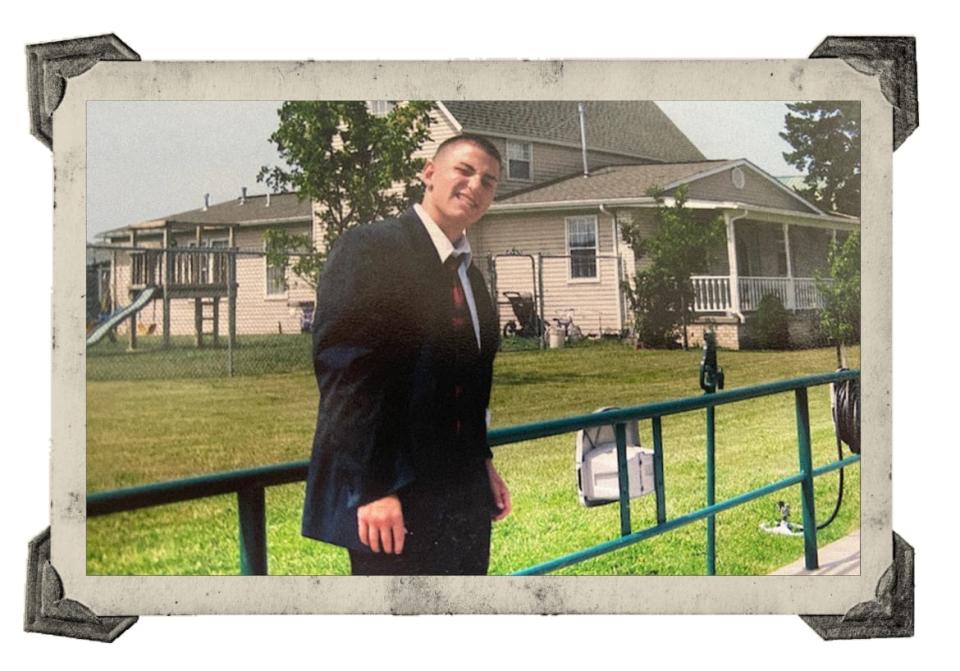
Schrag made friends with gang members at his new school and was eventually kicked out, so his parents sent him back to Missouri. “And within my first two weeks of being sent back to Agapé, a staff member had grabbed me by the collar and slammed me against the wall. I hit my head and basically, they restrained me for four hours. And that day, I decided … I’m not just gonna let them do this to me. I’m gonna fight back in whatever way possible.”
Elite California Private School Comes Clean on Decades of Sexual Abuse
"Essentially, to me, back then I was getting jumped by grown men,” Schrag said. “Now it’s grown men abusing a kid and the kid’s trying to survive in that environment. That set the precedent for how my Agapé teenage years went. Staff members were constantly yelling at us, cussing us out, calling us deadbeats.”
“If I just talked back, I could have said, ‘whatever,’ there was a good chance you were going to catch an elbow to the mouth and be slammed against the ground. That happened to me over 100 times,” he said.
Schrag claims that students should have been sent to the hospital for injuries including broken ribs on numerous occasions. Instead they were sometimes taken to Dr. Smock, a member of the Agapé church. “You couldn’t tell him what was going on,” Schrag said. “Kids got hurt all the time, and we were never allowed to tell people.”
When he was 17, Schrag says, he saw staff restrain one kid who drank GermX hand sanitizer after learning his mother died. “He didn’t know how to deal with it, and he got drunk and defiant. Those staff members restrained him for eight hours, and they made me sit there and watch it. They were just hurting him.” Schrag remembers the student had peed and vomited on himself, and staff were taking turns hitting his pressure points as punishment. “We ended up taking him to the hospital after eight hours of staff members rotating on him,” Schrag said.
Schrag refused to fall into line, enraged by what he’d witnessed. “There’s people that get broken and they submit and there’s people that fight the system. So when they started putting hands on me, and then I’d watch them slam other kids against the wall—I’ve seen kids’ heads get put through drywall—I made a decision. I’m gonna be here till I’m 18, and I’m going to walk out of here alive.”
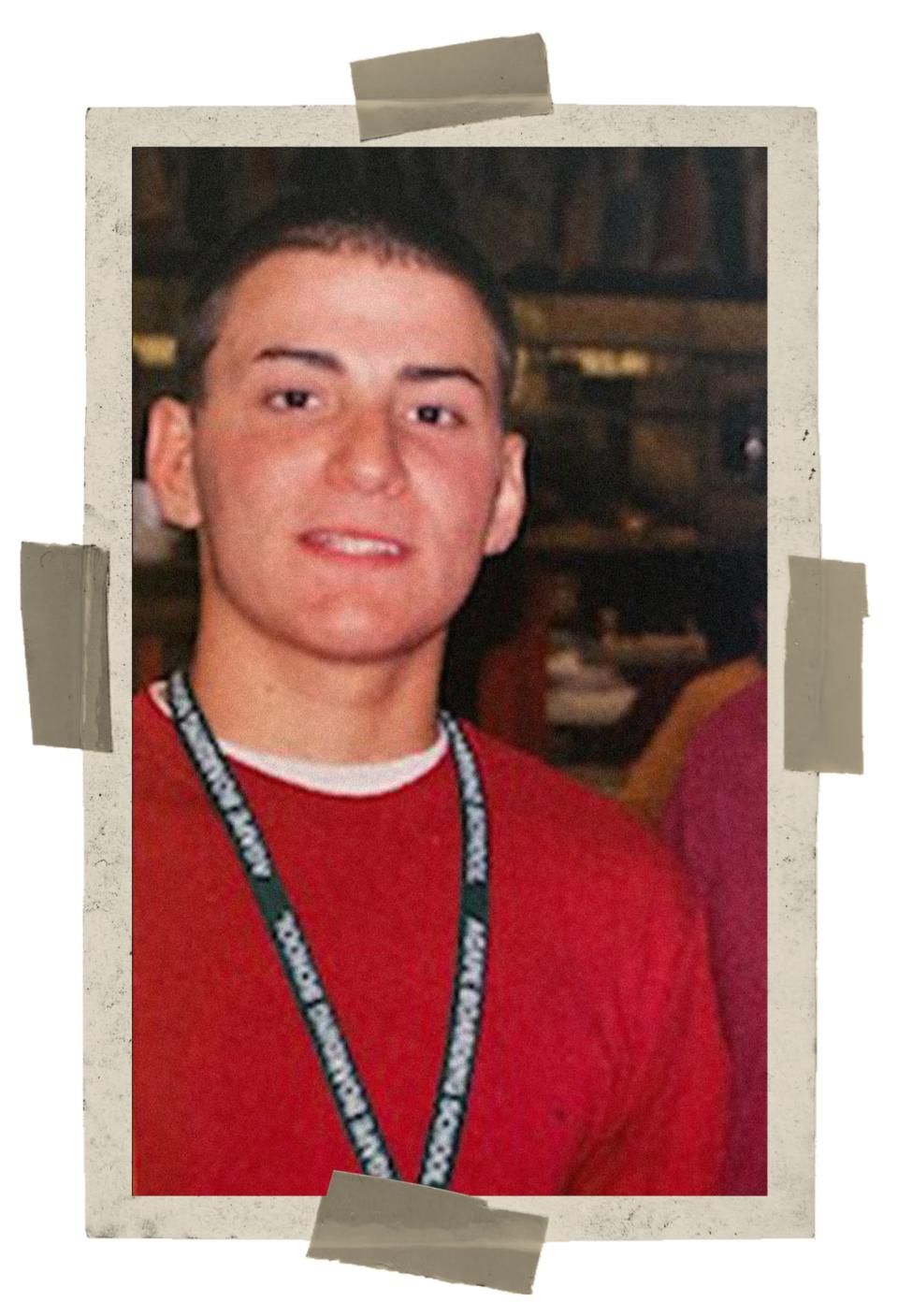
At one juncture, Schrag commented to another student that there were about 200 kids and maybe 40 staff members. “Why don’t we take a stand and put a stop to this and take over the school?” Schrag asked, and shortly after, someone tattled on him.
According to Schrag, Agapé punished him every day for four months by forcing him to wear a large bathrobe and size 13 shoes with no laces or tongues, stand against a wall for hours, go without bed linens, and have meager meals: a small bowl of Cheerios with water for breakfast, one peanut butter sandwich for lunch, and a small salad with water for dinner.
The punishment also included working out all day, doing manual labor outside and hauling five-gallon buckets of rocks, with little water. Two other Hispanic kids were ordered to the same fate, and Schrag says they all discussed trying to flee the facility.
One night, a group of staff members allegedly dragged Schrag out of his bed and into a hallway, where he found one of those Hispanic classmates with a bruised face and bloody nose. His shirt was ripped open and he was weeping. Brian Clemensen, the head of the school, asked Schrag about the plot to escape. When Schrag denied knowing anything about it, Clemensen allegedly punched him in the face, and hit him three more times after Schrag swung back. (Reached by phone on Thursday, Clemensen said he was not able to comment and referred us to Agapé’s lawyer.)
“They were kicking us, calling us terrorists, pieces of shit. He said, ‘This is why we don’t let your type of people into this country.’ Just racist stuff,” Schrag recalled. “We had that X on our back for years.”
When he turned 18, he joined the military, having nowhere else to go. He remembered how Agapé belittled him, drilling into his head that he was gonna be dead or in prison once he left the school. “When I left for the Army, to pursue this life that I had no knowledge of, I made it a point every day just to wake up in the mornings and say, ‘I’m only gonna die today if it’s natural. If it’s supposed to be. I’m not going to go to prison today.’”
“I woke up every morning for almost 10 years telling myself that,” Schrag said, his voice wavering. “I cannot prove these people right, because then they win. All that pain I went through and all that abuse, if I end up in prison or dead because of something stupid, then all I did was prove them right. I can’t do that. I cannot give them the satisfaction.”
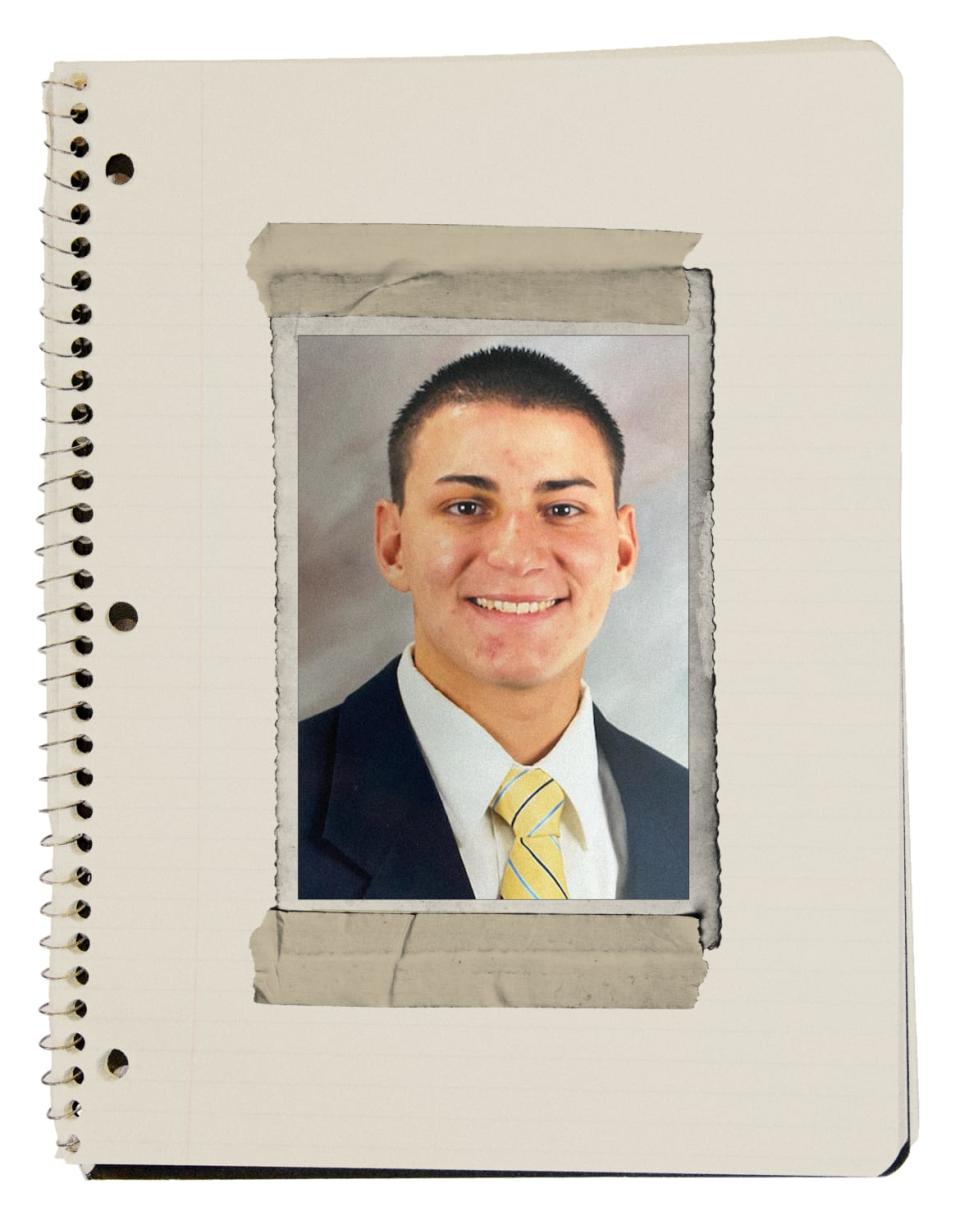
Schrag said he’s grappled with PTSD after Agapé. He had nightmares almost every night of being dragged out of his bed. He was jumpy. His marriage fell apart. When he saw a therapist, he told her, “I’m going to tell you a story you’re probably not going to believe, but it’s 100 percent true.” Speaking more and more about the school lifted a weight from his chest. He’d eventually leave the devil at Agapé behind.
But while the abuse was happening, no one believed him. He remembers running away from the school at age 15 and a local police officer picking him up. The cop handcuffed him and tossed him into the back of a squad car, announcing, “I’m taking you back to Agapé.” Schrag replied, “Why? They’re beating on us, dude,” to which the officer said, “No, they’re not, shut your mouth” and delivered him back to the compound.
“It’s like being trapped in a cult,” Schrag said. “You get free and you’re like, well, there’s so much more to life. But what am I allowed to do? Am I allowed to even go to Walmart, you know, like, can I go to this park? Or can I even acknowledge that this girl is super pretty? Because if I looked at a staff daughter, I was getting punched in the face and slammed on the ground. So it makes you very dysfunctional.”
Now 30, Schrag works in the oil industry and has broken out of his shell. He says he’s never met a stranger. “You know, life’s what you make it and I’ve done my best to make it better than what I had growing up,” he said.
In recent years, Schrag began to give interviews about Agapé and rally awareness on social media about the abuse he and others suffered. “I don’t want parents to only have one side of the story,” he said. “I want parents to know when they type in Agapé Boarding School, they have the option to see all of our stories.”
“But I also want the former students that were there, whether they just left or they were there in the ’90s to know somebody’s listening. It’s OK to ask for help and talk about it. Because there’s a whole lot of men out there that went to the school that are still hurting and they don’t know how to deal with it.”
Got a tip? Send it to The Daily Beast here
Get the Daily Beast's biggest scoops and scandals delivered right to your inbox. Sign up now.
Stay informed and gain unlimited access to the Daily Beast's unmatched reporting. Subscribe now.

